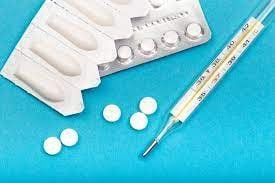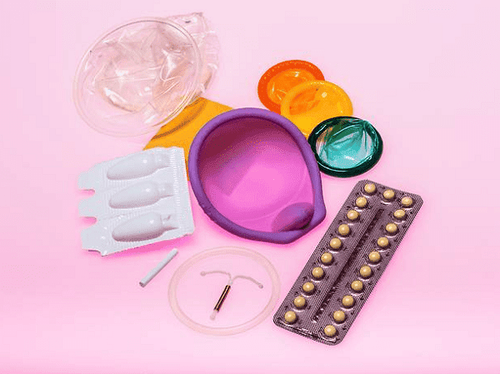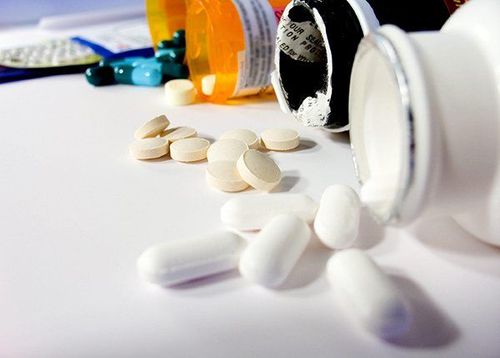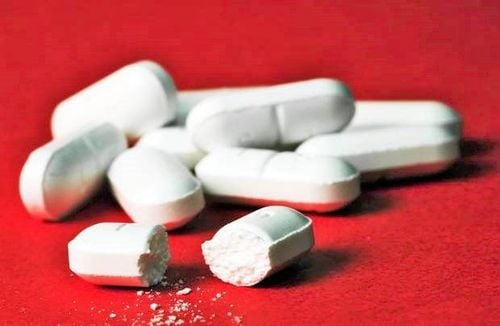This is an automatically translated article.
Fever is a good sign when the immune system is active against pathogens. However, if the fever is too high, it can affect health, so it is necessary to use some ways to reduce fever when fever to limit those risks.
1. What is a fever?
Fever is a state of hyperthermia, a body's response to an infection caused by a virus, bacteria or possibly heatstroke, heat stroke, dehydration, thyroid disease... Usually, a fever is a reaction. It responds well and is not harmful to the body, but when the fever is too high, it will cause nerve cell damage and fatigue for the patient.
Most people have a basal temperature of 37°C, some people have a basal temperature slightly higher or lower. Daily temperature fluctuations are also normal.
To know if you have a fever or not, take your temperature. Fever when measured temperature:
Oral or rectal at 38°C or higher. Armpit temperature above 37.5°C. For infants and young children, an rectal thermometer should be used for the most accurate results.
2. How to cool down when you have a fever
When you or a loved one has a fever, it is very important to know how to lower the body temperature. Here are some ways to cool down when you have a fever at home:
Stay in bed and get more rest: When you have a fever, your body is working hard to fight pathogens, so you need to Rest so that the body is strong enough to fight the fever-causing agent. Rehydration: When fever, the body loses water and salt, so it is necessary to replace the lost fluid. To compensate for the loss of fluid, you should drink rehydration solutions and electrolytes such as oresol, hydrite... In addition, you can use cooled boiled water, fruit juice, dilute salt porridge... Use antipyretic drugs over-the-counter like acetaminophen, ibuprofen, aspirin to lower body temperature. Note, when using it, it is necessary to use the right dosage, do not use them together with other antipyretic drugs or combine the above 3 drugs together. Do not give aspirin to an infant or young child for fever without first consulting a doctor. Infants younger than 6 months old should not take ibuprofen. If you suspect or have a dengue fever, do not take aspirin or ibuprofen. Wear loose, sweat-wicking clothing and cover up with a few blankets, unless you have chills. Wipe your body with warm water: Warm water helps the blood vessels under the skin dilate and makes the body's heat able to dissipate. However, when you have a cold feeling when wiping, you should stop. Find and treat the cause: Fever often has a cause, in order to completely limit it, it is necessary to find the cause of the disease and treat it. For example, if fever is a condition caused by a bacterial infection, antibiotics will be needed to treat it, which will help stop the fever faster. If it is caused by a virus, most people only use symptomatic treatment, after a few days the fever will go away on its own... When you have a fever, you may also experience some problems such as headache, nausea, vomiting, dizziness. face, muscle pain, fatigue, rash. Some symptoms require treatment if they make you very uncomfortable. Especially when fever is accompanied by vomiting, it is difficult for you to rehydrate by mouth, but you must seek medical help to avoid dehydration.

Dùng thuốc hạ sốt không kê đơn là cách hạ nhiệt khi sốt
3. Some notes when having a fever
Some cases of fever require medical intervention to avoid dangerous complications. Cases requiring immediate medical attention are:
Infants under 3 months of age should see a doctor if their fever is 38°C or higher, even if there are no other symptoms. Infants 3 - 6 months old when other symptoms such as signs of dehydration, agitation or lethargy, or fever higher than 39°C. Children 6 months - 2 years of age whose fever persists for more than 1 day or gets worse or does not decrease with medication. Children 2 - 17 years of age if their fever is higher than 39°C with malaise, or the fever persists for more than three days. Adults 18 years of age and older who develop a fever above 39.4°C or do not respond to treatment should call their doctor. Adults with a fever and other symptoms, such as stiff neck, severe pain anywhere on the body, or difficulty breathing, should seek medical attention right away. Fever in the elderly 65 years and older for symptoms such as shortness of breath or confusion. If you are experiencing these symptoms, seek medical help immediately. In cases of weakened immune system, you should seek medical attention. A compromised immune system is common in people with HIV , cancer or autoimmune diseases . Fever is often a sign of infections, which progress quickly or are difficult to treat. So, if you have a compromised immune system, it's important to get medical help right away to cure a fever. In addition, when having a fever, it is necessary to monitor the condition of yourself or your family members continuously to know the earliest bad changes.
The above is how to handle a fever, but if you are unsure about how to handle a fever, contact your doctor soon for advice and treatment.
Please dial HOTLINE for more information or register for an appointment HERE. Download MyVinmec app to make appointments faster and to manage your bookings easily.
Reference source: healthline.com












